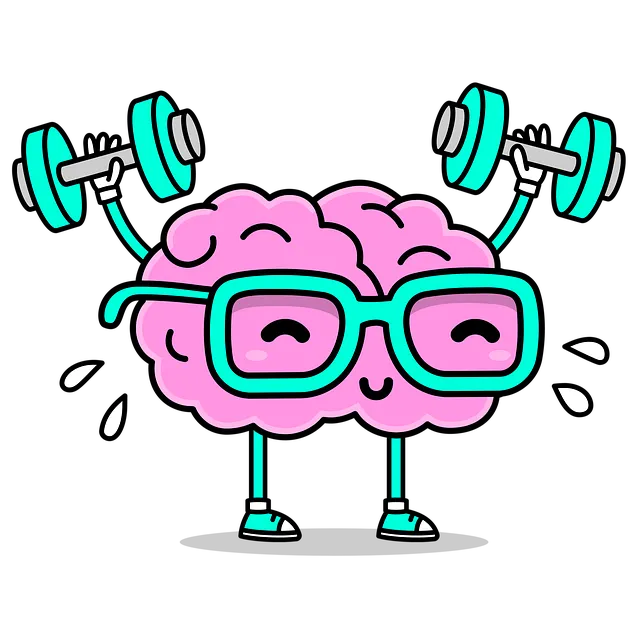Kaiser Permanente mental health Longmont emphasizes the importance of coping skills for managing stress and maintaining mental well-being, especially for those with mental health issues. They promote self-awareness exercises, healthcare provider cultural competency training, and holistic approaches to reduce stigma. Through comprehensive services, they empower individuals to identify personal stressors, develop effective coping mechanisms, foster resilience, and regain control over their mental health journeys. Key strategies include mindfulness meditation, deep breathing, self-esteem improvement, crisis intervention, and leveraging social connections through the Mental Wellness Podcast Series.
In today’s fast-paced world, developing robust coping skills is paramount for maintaining mental well-being. This comprehensive guide explores the critical role of coping mechanisms in navigating life’s challenges, especially within the context of Kaiser Permanente Longmont’s commitment to promoting resilient mindsets. From understanding the significance of these skills to identifying personal stressors and building a supportive network, we delve into effective strategies for enhancing mental health.
- Understanding Coping Skills and Their Significance in Mental Health
- The Role of Kaiser Permanente Longmont in Promoting Resilient Mindsets
- Identifying Personal Stressors and Triggers: A Key Step in Development
- Practical Strategies for Effective Coping Skills Acquisition
- Building a Supportive Network: Social Connections for Overcoming Challenges
Understanding Coping Skills and Their Significance in Mental Health

Coping skills are adaptive behaviors and strategies that individuals use to manage stress, navigate challenges, and maintain mental well-being. They play a pivotal role in our ability to cope with life’s ups and downs, especially when facing mental health issues. According to Kaiser Permanente mental health Longmont professionals, understanding and developing effective coping mechanisms can significantly impact an individual’s overall mental health and recovery process.
In the context of Mental Illness Stigma Reduction Efforts, promoting self-awareness exercises and Healthcare Provider Cultural Competency Training is essential. By enhancing their cultural competency, healthcare providers can offer more empathetic support to patients from diverse backgrounds, encouraging them to share coping strategies that resonate with their unique experiences. This holistic approach, combined with Self-Awareness Exercises, empowers individuals to navigate their mental health journeys effectively, fostering resilience and a sense of control over their well-being.
The Role of Kaiser Permanente Longmont in Promoting Resilient Mindsets

Kaiser Permanente Longmont plays a pivotal role in promoting resilient mindsets within its community. Through comprehensive mental health services, they empower individuals to develop coping skills and build confidence in managing stress and adversity. The organization offers tailored programs that address various aspects of mental well-being, fostering an environment conducive to resilience.
One notable initiative is the emphasis on self-care routine development for better mental health. Kaiser Permanente Longmont encourages individuals to prioritize their psychological needs through structured routines, helping them maintain emotional balance. Additionally, risk management planning for mental health professionals is a key focus, ensuring that healthcare providers have the tools and strategies to navigate challenging situations while safeguarding their own mental health.
Identifying Personal Stressors and Triggers: A Key Step in Development

Identifying personal stressors and triggers is a fundamental step in coping skills development. This process begins with introspection—a self-reflective journey to uncover what sets off our emotional responses. It’s akin to navigating a labyrinth, where each turn reveals a new insight into our unique landscape of stress. At Kaiser Permanente mental health Longmont, we understand that this step is crucial for fostering mental wellness coaching programs development.
By recognizing our individual triggers—be it work-related pressures, financial worries, or interpersonal conflicts—we can initiate targeted strategies to manage them. This awareness forms the foundation upon which we build our coping mechanisms. Moreover, it plays a significant role in mental illness stigma reduction efforts, as understanding our personal stressors helps break down the barriers that often isolate individuals struggling with mental health issues. This proactive approach is essential for cultivating emotional intelligence and empowering individuals to take control of their well-being.
Practical Strategies for Effective Coping Skills Acquisition

Developing effective coping skills is a powerful tool for anyone looking to enhance their mental well-being. At Kaiser Permanente mental health Longmont, we offer practical strategies tailored to help individuals navigate life’s challenges with resilience. One key approach is focusing on emotional regulation. Learning techniques such as mindfulness meditation and deep breathing exercises enables people to manage stress and anxiety more effectively. These practices allow individuals to gain better control over their emotional responses, fostering a sense of calm and clarity.
In addition, prioritizing self-esteem improvement plays a pivotal role in coping skill development. Engaging in activities that boost self-worth, like setting achievable goals or practicing positive self-talk, can significantly impact an individual’s ability to cope with difficult situations. Moreover, seeking crisis intervention guidance from professionals at Kaiser Permanente mental health Longmont provides valuable support during times of crisis. This guidance equips individuals with additional tools and resources to handle challenging circumstances effectively, ensuring long-term mental health and well-being.
Building a Supportive Network: Social Connections for Overcoming Challenges

Building a strong support network is an essential aspect of coping skills development, and Kaiser Permanente mental health Longmont recognizes this. Social connections play a vital role in overcoming challenges and fostering mental wellness. The Mental Wellness Podcast Series Production often highlights the importance of community, offering practical advice on how to navigate through difficult times with the help of loved ones.
Surrounding oneself with a supportive network can significantly enhance one’s ability to manage stress. This includes engaging in open conversations about feelings and seeking active listening from peers and family. The Inner Strength Development process involves recognizing and leveraging these connections, which can provide comfort, practical assistance, and a sense of belonging—all crucial elements for maintaining mental health.
Coping skills development is an empowering journey towards enhancing mental resilience, and Kaiser Permanente Longmont plays a pivotal role in this process. By understanding personal stressors and implementing practical strategies, individuals can navigate challenges effectively. Building a supportive network of social connections further strengthens this journey. Incorporating these techniques into daily life, inspired by the resources provided by Kaiser Permanente Longmont, fosters a more resilient mindset, ultimately contributing to improved mental health outcomes.






